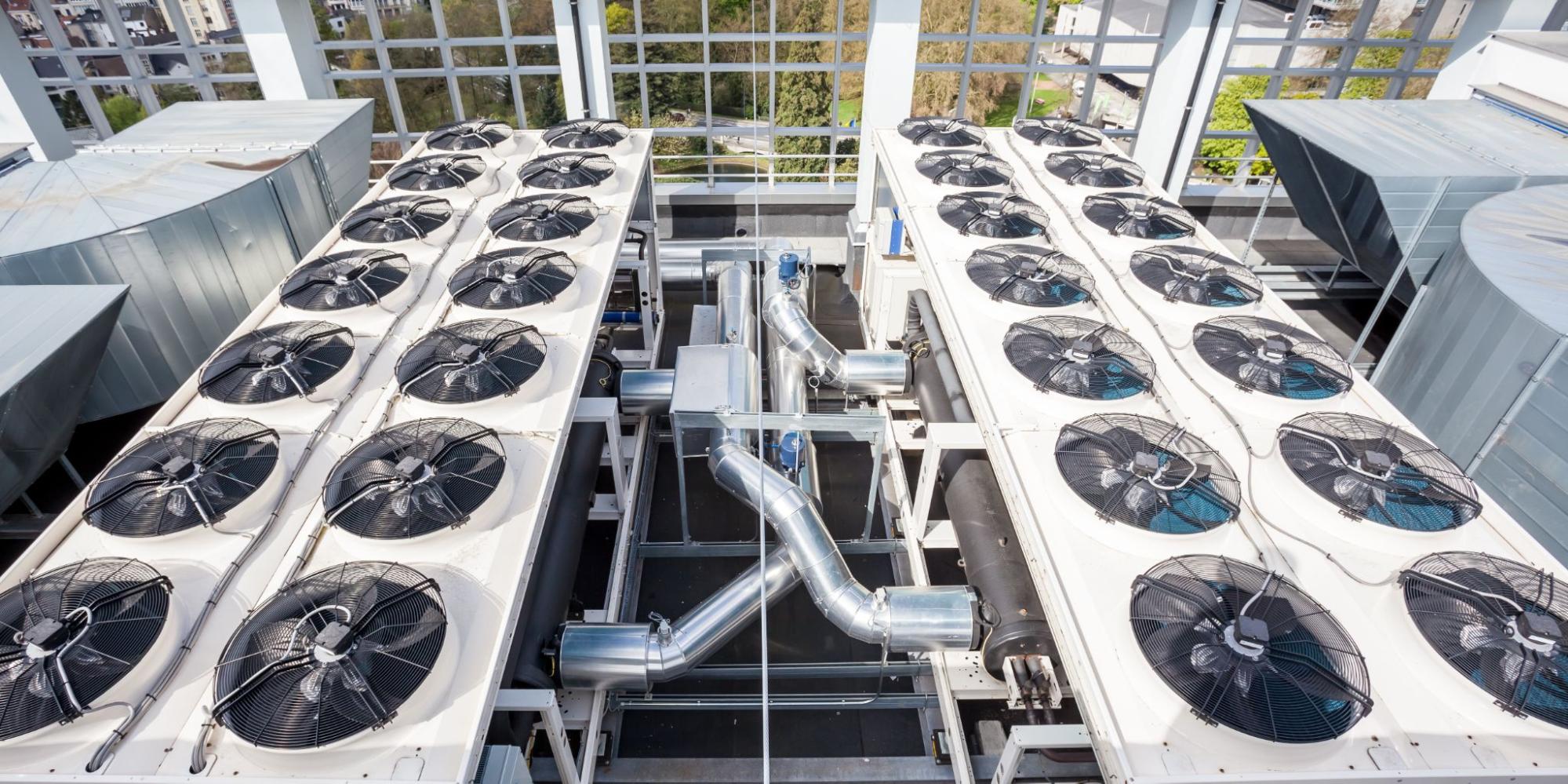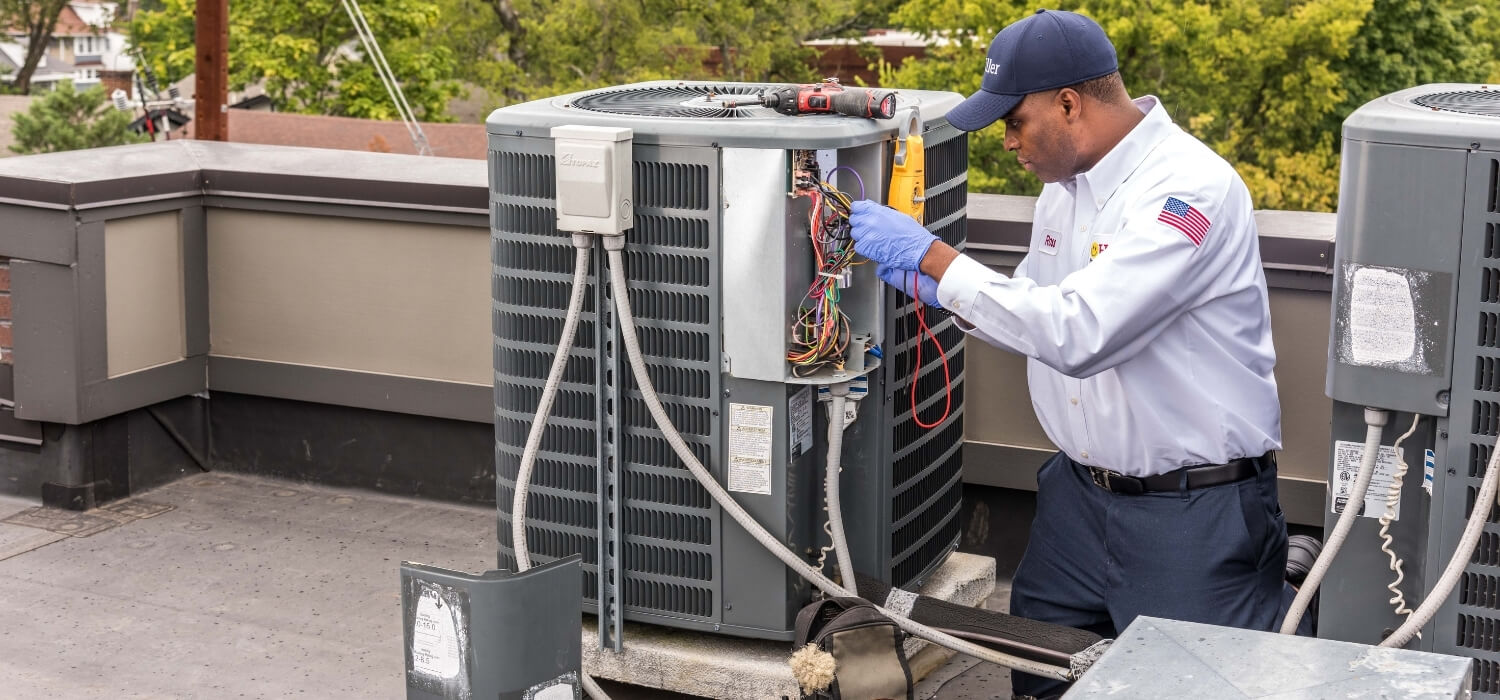A Comprehensive Take A Look At Heating And Cooling Providers and Their Influence On Power Efficiency and Price Savings
The function of cooling and heating solutions in enhancing energy performance and achieving expense financial savings is extra essential than ever, as companies and house owners look for lasting solutions in an increasingly eco-conscious world. With technical developments like wise thermostats and high-efficiency components, the capacity for maximizing system performance is large. Yet, real influence of these developments depends largely on normal maintenance and positive issue monitoring. As we check out the complex partnership in between HVAC systems and operational costs, consisting of the change in the direction of eco-friendly alternatives, the question emerges: exactly how can these techniques be properly applied to maximize both economic and ecological benefits?

Relevance of Cooling And Heating Equipments
cooling and heating systems are an essential part of contemporary structures, playing an important role in maintaining comfy and healthy and balanced indoor settings. These systems, incorporating heating, air, and ventilation conditioning, are crucial for controling temperature, moisture, and air high quality, thus ensuring the health of passengers. Effective HVAC systems add substantially to creating an optimum indoor climate, which is vital for both business and property spaces.
In commercial buildings, HVAC systems are integral to supplying a risk-free and productive setting. By regulating indoor environment conditions, these systems help stop the development of mold and the spread of air-borne contaminants, hence protecting the wellness of consumers and employees. In addition, in residential settings, HVAC systems enhance living problems by offering consistent thermal convenience and enhancing interior air quality, which is crucial for total health.
Moreover, the design and upkeep of HVAC systems have a direct influence on energy consumption and operational expenses. Effectively designed and maintained systems can significantly decrease energy use, bring about reduced utility expenses and a smaller carbon footprint. The effectiveness of these systems hence plays a crucial function in promoting sustainability and power preservation within structures, highlighting their relevance in the modern-day building landscape.
Breakthroughs in HVAC Technology
Innovation in heating and cooling modern technology is revolutionizing the method structures take care of indoor climates, ushering in a brand-new period of performance and control. Current innovations have focused on enhancing power usage while boosting customer comfort. One significant development is the assimilation of wise thermostats, which utilize artificial knowledge to discover occupancy patterns and adjust temperatures appropriately, decreasing unnecessary energy usage.
Variable Cooling Agent Circulation (VRF) systems stand for another significant jump ahead. These systems enable accurate temperature control in various zones of a building, improving convenience and lowering power waste. VRF modern technology is especially valuable for big business areas, offering flexibility and scalability.
In addition, the development of Internet of Points (IoT) gadgets has changed a/c systems right into interconnected networks with the ability of real-time data collection and evaluation. This connectivity allows anticipating maintenance, making certain systems operate at peak performance and lessening unexpected downtime.
Moreover, innovations in materials and design, such as making use of high-efficiency coils and compressors, have actually enhanced general system efficiency - Heating Contractor. The adoption of eco-friendly cooling agents likewise underscores the market's dedication to sustainability
These technical developments are crucial in lowering operational prices and ecological effect, setting new requirements for developing environment administration.
Cooling And Heating Maintenance and Efficiency
Making sure optimal performance of a/c systems expands beyond technological innovations; it also rests on efficient upkeep methods. Normal maintenance is vital for maintaining efficiency, lowering energy consumption, and expanding the lifetime of cooling and heating systems. The main objective is to guarantee that all components function at their peak possibility, thus reducing energy wastage and maintaining consistent indoor comfort degrees.
Regular upkeep jobs, such as cleansing or changing air filters, examining cooling agent degrees, and evaluating ductwork for leakages, are necessary for protecting against unneeded stress on the system. Blocked or dirty filters can block air flow, triggering the system to work harder and consume even more energy. Also, inadequate refrigerant levels can decrease cooling efficiency, resulting in higher operational prices.
In addition, regular assessments by qualified professionals can determine possible problems prior to they intensify into costly repair work or system failures. These examinations often consist of inspecting electrical links, calibrating thermostats, and ensuring the total stability of the a/c system. comfort air conditioning By attending to minor problems early, services and homeowners can prevent unexpected malfunctions and enhance power efficiency.
Economical Heating And Cooling Solutions
For those aiming to get one of the most out of their air flow, heating, and air conditioning systems without damaging the bank, checking out cost-effective cooling and heating options can click make a significant distinction. One prompt step is to spend in programmable thermostats, which permit users to establish details temperatures for various times of the day, maximizing energy use and lowering unnecessary usage. By automating temperature modifications, property owners can accomplish significant savings on power bills.
Normal upkeep is another vital component of affordable a/c monitoring. Making certain that filters are cleansed or replaced consistently, ductwork is secured, and systems are serviced by experts can avoid expensive repair services and improve system durability. Preventive maintenance not just keeps system effectiveness however also helps in avoiding unexpected breakdowns that can result in pricey emergency situation repair services.
Furthermore, retrofitting existing systems with energy-efficient components, such as variable rate electric motors or high-efficiency compressors, can be a prudent investment. These upgrades boost functional efficiency, lower power usage, and can usually be applied at a portion of the cost of a complete system substitute.
Environmental Effect Reduction
Minimizing the ecological impact of HVAC systems is critical in today's search of sustainable living. Cooling and heating systems are considerable factors to energy usage, accounting for nearly 40% of power usage in business structures.
Technological improvements in HVAC layout and procedure, consisting of the assimilation of clever thermostats and energy-efficient heatpump, are essential in minimizing carbon impacts. These developments enable for enhanced energy use, decreasing wastage and enhancing overall system performance. Furthermore, taking on routine upkeep practices makes certain cooling and heating systems operate at peak effectiveness, more cutting unneeded power usage.
Furthermore, the usage of eco-friendly refrigerants is crucial, as standard refrigerants, like CFCs and HCFCs, have been eliminated due to their ozone-depleting residential properties. Modern choices, such as hydrofluoroolefins (HFOs), offer reduced ecological dangers, aligning with worldwide environmental procedures. By embracing these lasting practices, heating and cooling services can play a transformative function in minimizing environmental impacts, promoting power effectiveness, and promoting a more lasting future.
Verdict

Moreover, the style and upkeep of HVAC systems have a direct influence on energy usage and operational prices. Routine upkeep is essential for sustaining performance, minimizing energy usage, and extending the life period of Heating and cooling systems. HVAC systems are significant factors to energy intake, accounting for nearly 40% of energy usage in industrial buildings. Furthermore, adopting routine upkeep techniques guarantees Cooling and heating systems operate at peak performance, further reducing unnecessary power consumption.
The transition to environmentally friendly Heating and cooling systems even more minimizes operational expenses and advertises sustainability. (Heating Contractor)
Comments on “Trusted Air Conditioning Contractor for Your Air Conditioning Demands”